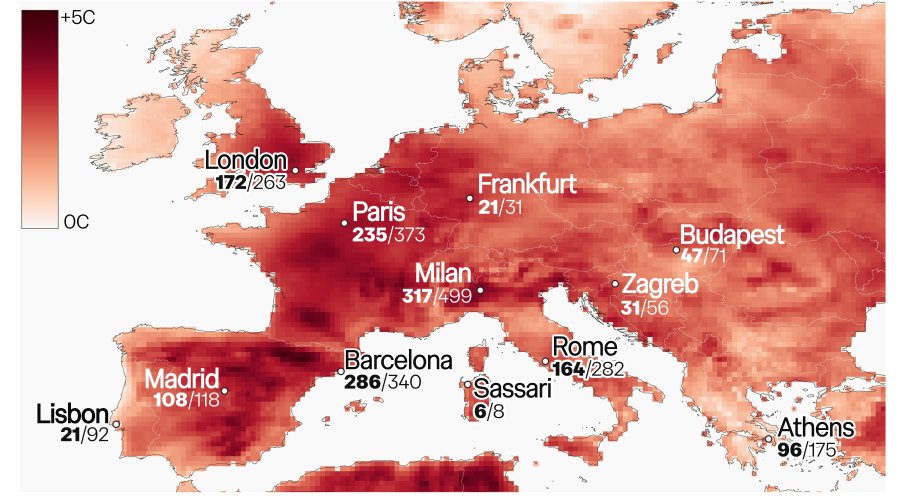Rapid modelling analysis suggests climate change may have tripled number of expected deaths from recent European heatwave.
The extreme heat swept across Europe in late June and early July, with temperatures above 40C recorded in several countries has been intensified by human-induced climate change, according to a rapid study, led by researchers from the London School of Hygiene and Tropical Medicine (LSHTM) and Imperial College London.
Using well-established models, previously published results on temperature-related mortality across Europe, and a recently developed framework for near real-time analysis, the researchers calculated the number of heat-related deaths that may be attributed to the recent heatwave for each city. They then compared this to expected heat-related deaths if the climate had been cooler.
They found that around 2,300 people may have died as a result of the extreme temperatures recorded over the 10-day period across the 12 cities analysed. This is around three times higher than the number of deaths without human-induced climate change (800 deaths). It equates to about 65 per cent deaths in the heatwave due to global warming.
Dr Pierre Masselot, Assistant Professor at LSHTM and a co-author of the study, said: “At the rate the world is warming, heatwaves are not going away and we have to prepare for their public health impacts. Cities can adapt by planting trees, reducing the space given to cars and caring for the most vulnerable. But ultimately, the best way to avoid dire consequences is to aggressively reduce greenhouse gas emissions.”
© 2019 Perspective Publishing Privacy & Cookies








Recent Stories